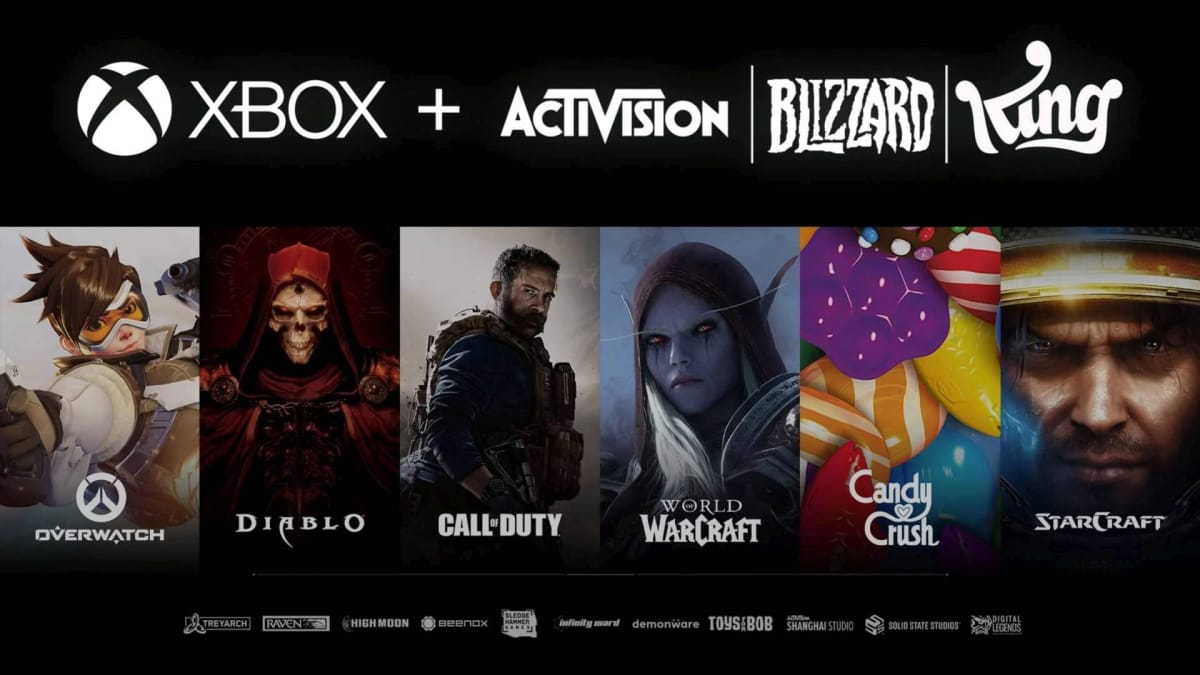Today the British Competition Appeal Tribunal (CAT) published the application by Microsoft to appeal against the local Competition and Markets Authority (CMA) following its decision to block the acquisition of Activision Blizzard.
The document reveals that the first step in the appeal procedure will be a case management conference on May 30, 2023, at 2:00 pm local time.
We also get a summary of Microsoft's arguments against the CMA's ruling, broken down into five main points. The house of Xbox certainly does not mince words in heavily criticizing the regulator's decision and methods.
Ground 1: The Respondent made fundamental errors in its assessment of the Applicant’s current position in cloud gaming services by failing to take account of constraints from native gaming (whereby gamers access games installed on their devices through a digital download or physical disc), undermining its SLC finding:
a) In its market definition analysis, the Respondent failed to consider potential switching to native gaming, resulting in a flawed conclusion that cloud gaming services fall in a separate product market.
b) Even on the Respondent’s erroneous, narrow, market definition, the Respondent failed to take into account relevant out-of-market constraints from native gaming in its competitive assessment of vertical foreclosure effects.
c) The Respondent made fundamental errors in its calculation and assessment of market share data for cloud gaming services and as a result failed to take into account relevant considerations in its competitive assessment.
Ground 2: The Respondent erred in failing to take proper account of three long-term commercial agreements which the Applicant had entered into with cloud gaming providers for the licensing of rights to stream its games, including Activision’s gaming content, post-Merger (the “Agreements”) in its assessment.
Ground 3: The Respondent’s finding that Activision would have been likely to make its gaming content available on cloud gaming services absent the Merger was irrational and arrived at in a procedurally unfair manner.
Ground 4: The Respondent’s findings that the Applicant would have the ability and incentive to foreclose rival cloud gaming services by withholding access to Activision’s gaming content post-Merger was unlawful. In particular, the Respondent’s analysis was affected by four errors, each of which in isolation, separately, and/or cumulatively, renders the findings on ability and incentive unlawful, irrational and/or disproportionate.
a) The Respondent wrongly relied on evidence that so-called ‘AAA’ games would be important for cloud gaming services to find that Activision games in particular would hold such importance.
b) The Respondent failed to take account of relevant evidence regarding immediate losses from hypothetical foreclosure, which showed that the Applicant would not have an incentive to withhold access to Activision games from cloud gaming rivals.
c) As set out in Ground 1 and Ground 2, the Respondent wrongly failed to take account of (i) relevant out-of-market constraints and (ii) the Agreements.
Ground 5: In assessing remedial action for the SLC, the Respondent:
a) Erred in law by proceeding on the basis that it had a duty to impose what it described as a comprehensive remedy, thus failing to consider a range of remedies and assess their benefits and detriments in the round;
b) Unlawfully failed to take account of the interests of comity;
c) Erred in rejecting the Microsoft Cloud Remedy, which rejection was in all the circumstances disproportionate; and
d) Acted in breach of the Respondent’s common law duty of fairness and the CMA’s own remedies guidance
Microsoft is asking the CAT to void the CMA's decision in its entirety and even to force the regulator to pay for the costs of the appeal's application, on top of whatever remedy the Tribunal would deem fit to pile on.
Interestingly, the document also mentions that any person who believes that they have a sufficient interest in the outcome of the proceedings may make a request for permission to intervene.
A Microsoft Spokesperson provided TechRaptor with a statement about the appeal, expressing confidence in its strength:
The CMA's decision is flawed for multiple reasons, including its overestimation of the role of cloud streaming in the gaming market and our position in it, as well as its unwillingness to consider solutions that received overwhelming industry and public support. We are confident in the strength of our appeal and the binding commitments we have made to increase competition and choice for players today and in the future.
Recently, the European Union approved the deal including proposed remedies to level the competition playing field on the cloud market, which Microsoft agreed to. A few days ago, we also learned that the deal was approved by the Chinese regulator, bringing the number of countries that cleared the acquisition to 37.
This leaves the British CMA isolated in its ruling against the deal, with the American FTC matching its opposition, but having to go through a legal process to actually be able to block it.
In the meanwhile, a judge of the United States District Court Northern District of California denied the preliminary injunction requested against Microsoft in the so-called "gamers' lawsuit" which also aims to prevent the acquisition.







